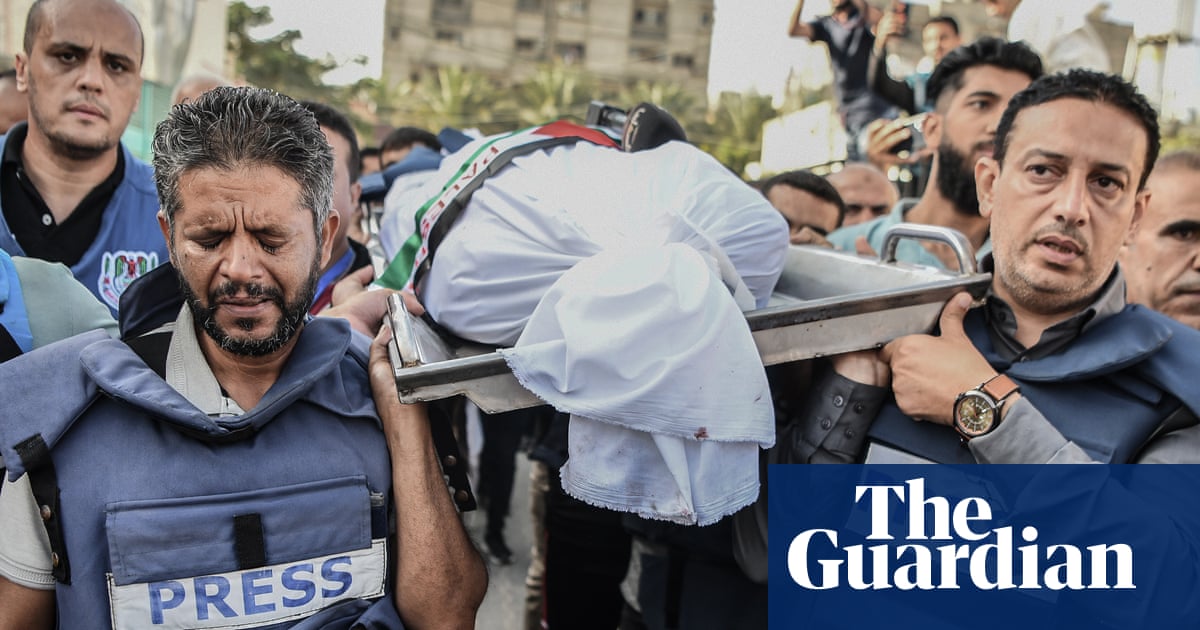World
Attacks on press freedom around the world are intensifying, index reveals

Political attacks on press freedom, including the detention of journalists, suppression of independent media outlets and widespread dissemination of misinformation, have significantly intensified in the past year, according to the annual World Press Freedom Index published by Reporters Without Borders (RSF).
The index ranks 180 countries on the ability of journalists to work and report freely and independently.
In a year when more than half the world’s population will go to the polls in democratic elections, the RSF’s index shows an overall decline in press freedom globally and a steep rise in the political repression of journalists and independent media outlets.
“RSF sees a worrying decline in support and respect for media autonomy and an increase in pressure from the state or other political actors,” said Anne Bocandé, RSF editorial director. “States and other political forces are playing a decreasing role in protecting press freedom. This disempowerment sometimes goes hand in hand with more hostile actions that undermine the role of journalists, or even instrumentalise the media through campaigns of harassment or disinformation.”
Quick Guide
Press Freedom
Show
Press freedom around the world is threatened by conflicts, war and government crackdowns. The past year has seen 99 journalists killed and countless more attacked, threatened and intimidated for doing their job.
But from the journalists working in Gaza to the female reporters writing on Afghanistan since the Taliban seized power, people continue to put themselves in danger to tell stories and bring issues to light that would otherwise be lost or remain hidden.
We are running a series of pieces this week exploring the threats and challenges faced by media, ahead of World Press Freedom Day on 3 May, created to remind governments of their duty to uphold freedom of expression.
Help support independent journalism by subscribing to the Guardian this week.
The Maghreb and Middle East regions performed the worst in terms of restrictions on press freedom by government forces, according to the report. In the past year, said RSF, governments across the region have attempted to control and curtail the media through violence, arrests and draconian laws, compounded by “systematic impunity for crimes of violence against journalists”.
The RSF says that, since October 2023, more than 100 Palestinian reporters have been killed by in Gaza, including at least 22 in the course of their work.
Elsewhere in the region, journalists have been killed in Sudan, where there have been serious attempts to curb independent reporting of violence and civil war. The situation for media professionals in Syria has also deteriorated, with journalists who have fled press repression in their home country threatened with expulsion from neighbouring Jordan, Turkey and Lebanon. The RSF also says that four of the world’s biggest jailers of journalists – Israel, Saudi Arabia, Syria and Iran – have continued to attack and detain them.
The RSF says that Latin America is also showing alarming indicators of political repression of journalism. In Argentina, the new president, Javier Milei, has boasted about his assault on the free press and has shut down the country’s biggest new agency. Press freedom is also under sustained political attack in Peru and El Salvador.
The US has performed badly due to increasing attacks on journalists from political officials, including public calls to imprison reporters.
Elections in sub-Saharan Africa saw violence against journalists fuelled by political attacks on media freedom. In Nigeria nearly 20 reporters were attacked in early 2023, and in Madagascar, reporters were targeted while covering pre-election protests. More recently, Burkino Faso has suspended dozens of foreign news organisations, including the Guardian, over reporting of an alleged massacre of hundreds of civilians by the Burkinabe army.
In Europe, the index showed Russia dropping down the ranks of countries mounting attacks on press freedom for what the RSF terms its “crusade” against independent journalism. More than 1,500 Russian journalists have fled abroad since the invasion of Ukraine in 2022.
Belarus’s position near the bottom of the RSF’s index is due to the persistent persecution of journalists under the pretext of combating “extremism”.
Last week, a report by the German-based Civil Liberties Union for Europe (Liberties) warned that press freedom is “perilously close to breaking point” in several European countries.
Repression of the free press also worsened in the Asia-Pacific region. The RSF says that the region’s dictatorial governments have been tightening their hold over news and information with “increasing vigour” in countries such as Afghanistan, where the Taliban have all but destroyed independent journalism, and North Korea and China’s “all-out persecution” of local media. Vietnam and Myanmar also fell in the rankings this year due to their pursuit of mass imprisonment of media professionals.
The RSF also painted a bleak picture of the increasing use of artificial intelligence, calling its use in the arsenal of disinformation for political purposes “disturbing”, with deepfakes being used to influence the course of elections.
Reporting on the war against nature is also proving increasingly dangerous. Forty-four journalists have been killed for covering environment stories over the past 15 years, according to a separate report by Unesco, which organises today’s World Press Freedom Day.










